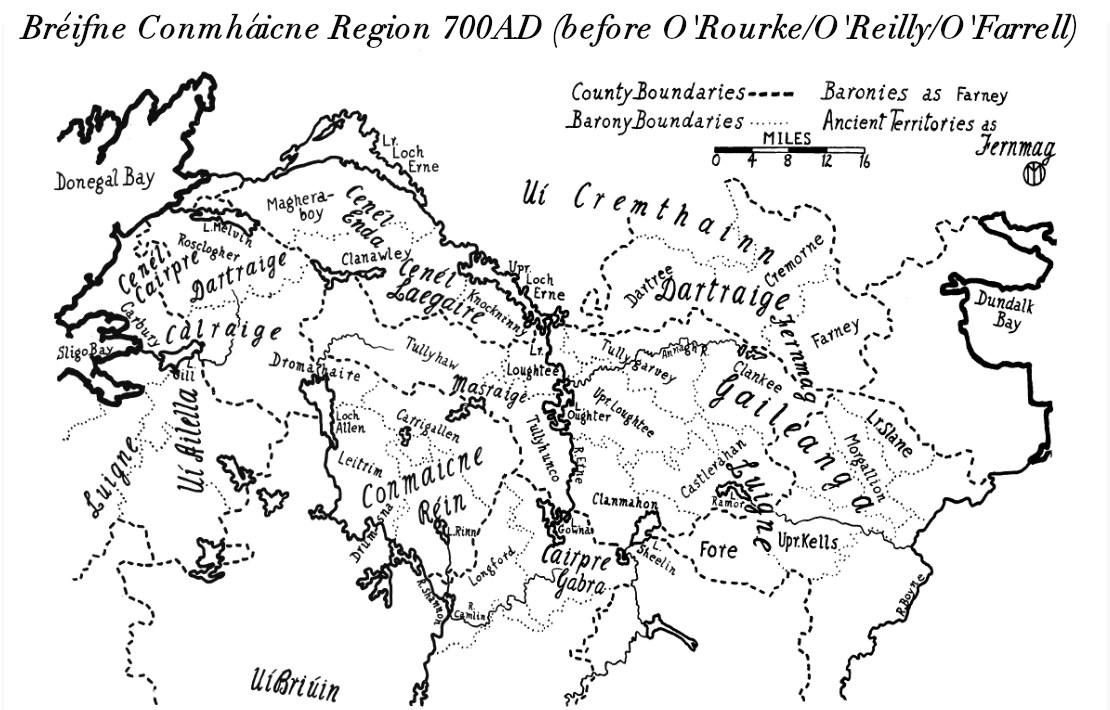Masraige on:
[Wikipedia]
[Google]
[Amazon]
 The Masraige () were a semi-legendary
The Masraige () were a semi-legendary
 The Masraige () were a semi-legendary
The Masraige () were a semi-legendary Fir Bolg
In medieval Irish myth, the Fir Bolg (also spelt Firbolg and Fir Bholg) are the fourth group of people to settle in Ireland. They are descended from the Muintir Nemid, an earlier group who abandoned Ireland and went to different parts of Europe. ...
tribe inhabiting Magh Slécht
Magh Slécht (sometimes Anglicised as Moyslaught) is the name of a historic plain in Ireland. It comprises an area of about three square miles (8 km2) situated in the south-eastern part of the Parish of Templeport, Barony (Ireland), Barony ...
in County Cavan
County Cavan ( ; gle, Contae an Chabháin) is a Counties of Ireland, county in Republic of Ireland, Ireland. It is in the Provinces of Ireland, province of Ulster and is part of the Border Region. It is named after the town of Cavan and is base ...
, Ireland. They were also called Masragii, Masraide, Masraidhe, Masruidhe, Mascraide, Masree, Macraighe or Mascraidhe. The name can be translated as "Beautiful/Fine-Looking/Handsome Folk", from Old Irish ''mass'' "fine, becoming, beautiful, handsome" and ''raige'' "pre-Gaelic tribe".
Masraige is mentioned in the Life of Dallán Forgaill
Eochaid mac Colla ( 560 – 640), better known as Saint Dallán or Dallán Forgaill ( sga, Dallán Forchella; la, Dallanus Forcellius; Primitive Irish: ''Dallagnas Worgēllas''), was an early Christian Irish poet and saint known as the writer of ...
as his birthplace.
In the Annals of the Four Masters
The ''Annals of the Kingdom of Ireland'' ( ga, Annála Ríoghachta Éireann) or the ''Annals of the Four Masters'' (''Annála na gCeithre Máistrí'') are chronicles of medieval Irish history. The entries span from the Deluge, dated as 2,24 ...
, they are mentioned as having killed Conall Gulban
Conall Gulban (died c. 464) was an Irish king and eponymous ancestor of the ''Cenél Conaill'', who founded the kingdom of ''Tír Chonaill'' in the 5th century, comprising much of what is now County Donegal in Ulster. He was the son of Niall No� ...
-"''M464.3 Conall Gulban, son of Niall of the Nine Hostages (from whom are descended the Cinel Conaill), was slain by the old tribes of Magh Slecht, he having been found unprotected, and was buried at Fidhnach Maighe Rein, by Saint Caillín, as the Life of the aforesaid saint relates''."
The Book of Fenagh mentions them as follows:
Page 89
I prophesy thee, without anguish. Give me my tribute every time, as Conall Gulban gave it. Conall was the first king of Tara, of the Clann-Neill, without dispute. 'Till he was slain in prosperous Magh-Rein, sixteen years he happily spent. The Masraighe went to the East once, on a great foray to Tara; Whereupon Conall quickly came, to Magh-Rein, in pursuit of them. A flying spear killed the king, on that journey, without falsehood, on Magh-Rein, at Dun-baile, of which the Masraighe boasted. Conall was interred in the earth, between the Lake and the Dun.Page 139
One time the Masraidhe of Magh-Slecht went on a predatory expedition to Tara, when they brought a prey of horses with them from the east. Conall, on hearing the shoutings, proceeded with the small number that was near him at the time; and he ceased not from ursuingthem until he came to Dun-Conaing on Magh-Rein, to wit, Fidhnacha at this day. And the old Tuatha-Slecht slew him, because he was unarmed; and that would not have been an occasion of slaughter to them, if luck had not willed. Or it is a flying spear that killed him. But whichever of them was his anner of death, it was the Masraidhe that committed the deed. Howsoever, the stone and grave of Conall were placed on Magh-Rein, at Dun-Baile.Page 145
Dun-Conaing was this place alled till to day, during the time of sixty prosperous kings, until Conall son of Niall fell, by the sons of the Liath, over the gap of treachery. Berna-in-braith was its name until this day, from the betrayal of Conall, the head of the host; Fidhnacha of Caillin son of Niata shall be its name, without falsehood, to the day of doom. In pursuit of horses he stoutly came, from the east, from Tara of the flocks, with a small company; 'twas a foolish journey, for he was slain by the old Tuatha-Slecht. Being without a shield against lance-thrusts was what caused the king his mortal wound. Too many men, and too many weapons, found the man at a disadvantage.The Masraige were one of the Aithechthúatha, a generic designation for certain Irish ethnic groups, usually translated as "rent-paying tribes", "vassal communities" or "tributary peoples". The term meant any tribe which did not belong to the ruling dynasties (such as
Uí Néill
The Uí Néill (Irish pronunciation: ; meaning "descendants of Niall") are Irish dynasties who claim descent from Niall Noígíallach (Niall of the Nine Hostages), a historical King of Tara who died c. 405. They are generally divided into the ...
or Eóganachta
The Eóganachta or Eoghanachta () were an Irish dynasty centred on Cashel which dominated southern Ireland (namely the Kingdom of Munster) from the 6/7th to the 10th centuries, and following that, in a restricted form, the Kingdom of Desmond, an ...
) who were overlords of the older tribes. The Masraige feature in an old Irish tale entitled ''Cairpre Cindchait and the Athach Tuatha'' The Masraige were conquered by the Uí Briúin Bréifne in the 8th century.
References
{{DEFAULTSORT:Masraige Historical Celtic peoples History of County Cavan Ethnic groups in Ireland Tribes of ancient Ireland